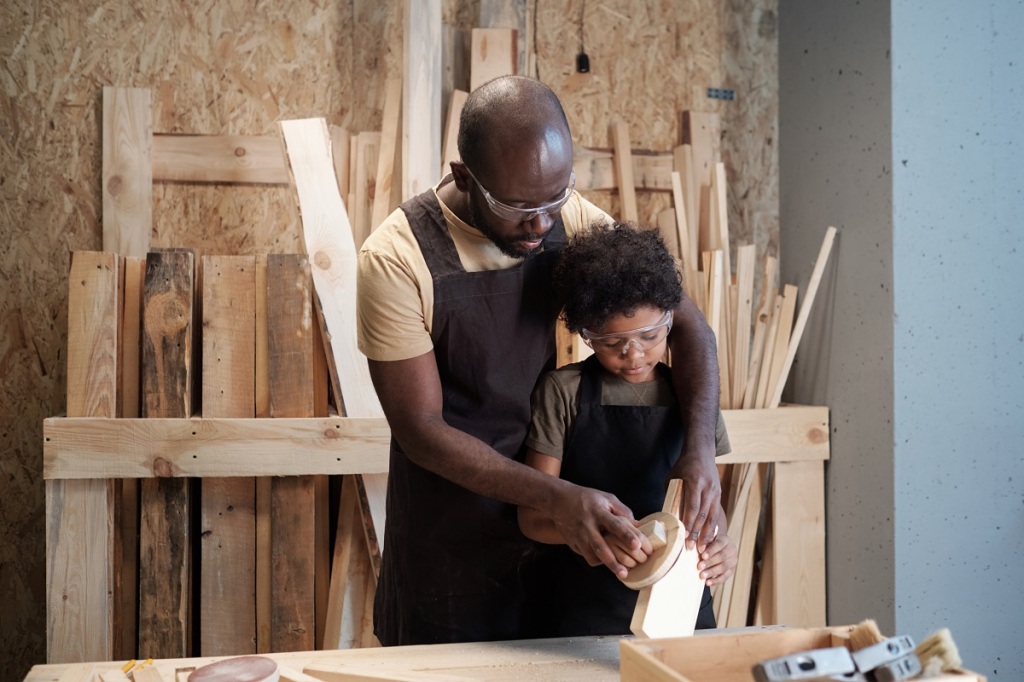Mentorship is a mutually beneficial relationship that cultivates the personal and professional development of both mentees and mentors. Its benefits transcend the boundaries of the relationship into their families, the organization, and the community.

The mentorship relationship is a two-way street that culminates at an interjection. But how do mentors efficiently achieve the high impact they desire from the relationship? Tasneem Damji, Programs Director at Dress for Success Vancouver, and Hanna Kitchingman, Executive Director at Dress for Success, Kingston share their experiences as mentors with Immigrant Muse.
How did you become a mentor?

Tasneem: My mentorship journey started with Spark of Hope. It is an organization that helps girls and women from developing countries that have experienced war to get scholarships for post-secondary education in various countries. My role was to work with them one-on-one to apply for a scholarship. I helped them highlight valuable information about themselves by asking them questions and listening to their stories. I never thought of what I did as mentoring.

Hanna: I became a mentor through my community contacts. I have been working alongside an employment agency that was working with youths for years. They reached out to me because they were looking for mentors. I always considered myself a leader who loves to give back. It was a great opportunity for me to say yes.
How can new mentors create an effective working relationship with their mentees?
Tasneem: It is very important to first build a connection with your mentee. When I was mentoring students in Syria, one of the first things I said is that I’ve been to Syria. They got really excited and asked questions about where I went or what I did. If I know that my mentee is a mother, I could ask her about her children.
Hanna: Building trust and rapport with your mentees is the most important step. But this takes time. So, start small by getting to know your mentees and making them feel comfortable. You can have conversations about your pets, favorite sports, and favorite food. Find common areas of interest, and be open and honest about what you know and what you don’t know. It’s fine to say you don’t know the answer but you would like to explore the topic together. Building a nice rapport with your mentee requires showing a bit of your vulnerability.
What tips can you give mentors to help their mentees succeed?
Tasneem: It is important to establish expectations and boundaries. At the start of the relationship, it is beneficial for you to talk about your mentorship style and role. You might say that I am here to empower you to do this work, to support you, and give you some advice to help you achieve your goal. But I’m not here to do the work for you. It is important to ensure that your mentee has goals that they can work on with you.
Hanna: Listen to what your mentee wants, needs, and feels. Let the mentees drive the conversation about their goals and their definition of success. Everybody’s vision of success is different so you can’t put your dreams and expectations on somebody else.
What skills can help mentors succeed?
Tasneem: Every mentor has their own style. I share stories when they’re relevant. Let’s say the person I’m mentoring is struggling or is wanting to improve in an area. If it’s an area that I had experience in, I find sharing a story helps. I used to think maybe the person thinks I’m just talking about myself, but I’ve heard a number of them come back to me and say that the story I shared helped them look at their own situation.
A good mentor is great at asking questions. Listen intently and give mentees the space to talk. Ask for clarifications and get them to think deeper.
I’m the kind of mentor that would like to gently push my mentees out of their comfort zone. I try to do that because I think the only way we can grow is to get out of our comfort zone, do things that we didn’t do before, or do things that scare us.
Hanna: You have to be patient and learn to lower your expectations. I have worked with a lot of high-risk, high-barrier women. So, what I expect of myself cannot be what I expect from somebody else.
You need to have the drive, dedication, and enthusiasm to help your mentees find ways to overcome their obstacles and celebrate every little step that they take. You need to be a go-getter but at the same time, keep a positive attitude in the face of challenges.
Be open to telling your mentee that though an obstacle has happened, that doesn’t mean you can’t get to the goal that you have. Maybe you just need to change the path to that goal. Maybe instead of taking two years, it will take you three years now but you can still find a way to get to your original goal.
How does mentorship help the mentor?
Tasneem: Mentorship can help mentors by realizing that they can have an impact on a mentee’s life. It is very powerful because you’re actually not just helping the mentee, but you’re helping the mentee’s family as well.
I heard mentors in the Professional Women’s Group (PWG) program of Dress for Success say that they learn a lot from their mentees. Our women are from all over the world, different areas of work, and different stages of life. Learning is not one-way. I have seen a lot of friendships develop. I think that’s a really nice outcome of it as well.
Hanna: Mentorship is very impactful to the community, organization, mentees, and mentors. Mentors get the fulfillment of giving back while learning more about the community. Mentors may not always be aware of what is happening in the community because we may be set apart by economic levels or cultural levels. So, it’s very eye-opening for the mentors to know what is happening at the very ground level of the community in terms of employment, education, poverty, and homelessness.
I also learn a lot about the internet, apps, and technology from my younger clients. So, I learn just as much from them as I hope they learn from us. I believe all of our mentors feel the same way as well.
What challenges have you had as a mentor?
Tasneem: When the mentee is not prepared for the meeting with the mentor, it’s hard for the mentor to know exactly how to help the mentee.
Hanna: The major challenge I’ve had is related to COVID and the difficulty of meeting mentees in person. Another challenge is rescheduling events to accommodate the mentees’ personal obligations. Our clients have responsibilities at home. Challenges come up at the last minute so you have to be flexible.
How would you encourage people to become mentors?
Tasneem: You can be a mentor in different ways. Mentorship could be a formal or informal relationship. It doesn’t necessarily require regular conversations like PWG. It could be even one conversation.
Hanna: Remember how much of a struggle it was for you and you wished you had someone to talk to. You could be that person for somebody else so they don’t feel lost. You can be like a shining star to help someone else get through the next step and the next step.
Mentorship is impactful to the mentor, mentee, and the community. Consider being a mentor to continue the cycle of growth and giving. Whether you’re seeking mentorship opportunity as a mentor or a mentee, there are a number of organizations across Canada offering mentorship in different areas that you can explore.
